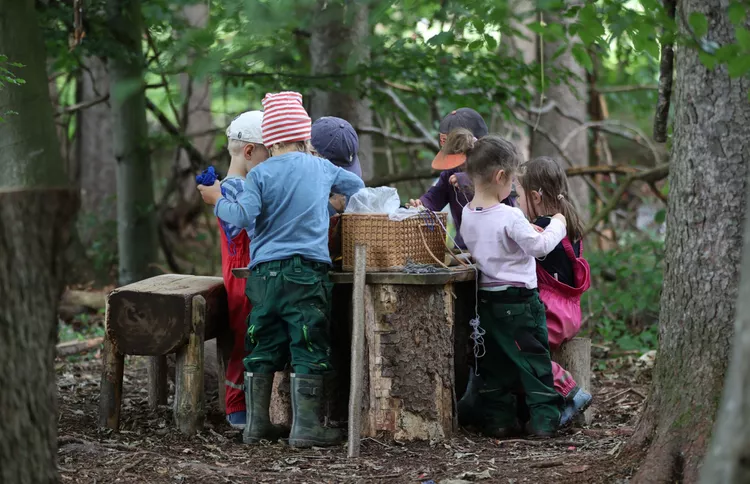As parents, it is natural to want to protect and guide our children through every step of their development. However, allowing young children to explore and play independently can have numerous benefits for their overall growth and well-being.

One of the key benefits of independent play is that it allows children to develop their autonomy and self-confidence. When children are given the freedom to make their own choices and explore their surroundings, they learn to trust their own instincts and make decisions on their own. This helps them to develop self-belief, and they prove to themselves just how capable they are!
Additionally, independent play allows children to develop their creativity and problem-solving skills. When children are given the opportunity to play and explore without adult supervision, they are free to use their imagination and come up with their own ideas. This encourages them to think critically and come up with creative solutions to problems, which are important skills that will serve them well in school and in their future careers.
Another benefit of independent play is that it helps children to develop their social skills. When children are given the opportunity to play with other children without adult intervention, they learn to negotiate and cooperate with their peers. This helps them to develop the ability to communicate effectively and work well in a team, which again, are important skills for success in both the academic and professional worlds. Stepping Back and Allowing For Independent Play It is understandable that as parents, we may find it difficult to separate from our child if they are upset or crying. It can be emotionally challenging to see our child in distress, and we may feel guilty or worried about leaving them in the care of others. However, it is important to remember that children are resilient and adaptable, and they will often quickly adjust to new situations, and overcoming these mild stressors are what helps nurture self-belief, self confidence, and self-esteem.
Another important thing to keep in mind is that schools and clubs are well equipped to distract and engage children. They will have a variety of activities that are designed to keep children entertained and engaged. Staff are trained to handle and comfort children who may be upset or crying, and they will do their best to make sure that your child is comfortable and happy. While as parents we might think our presence there is merely to serve as safety net, it actually creates a whole different session for the child and staff alike. Staff are unable fully to interact with the children as one eye is always on the parent, and likewise the child is unable to fully interact with the other children, staff, or activities.
Remember that the separation anxiety is temporary, and it is a normal part of the process of learning to be independent. Remind yourself that the staff are experienced and trained to take care of children, and your child will be in good hands. Remember that the benefits of independent play and exploration far outweigh the temporary discomfort of separation. We’ve created 10 ways to help your child get used to drop-off and be ready for independent play:
1. Prepare your child in advance: Talk to your child about what they can expect when they are dropped off at Forest School. Show them around the environment and introduce them to the staff.
2. Establish a consistent routine: Develop a consistent routine for drop-off, such as a goodbye hug or kiss, so that your child knows what to expect each time.
3. Play pretend drop-off: Play pretend drop-off games at home to help your child become more familiar with the process of being dropped off at a club or nursery.
4. Bring a familiar item: Allow your child to bring a familiar item from home, such as a stuffed animal, to help them feel more comfortable.
5. Speak positively: Speak positively about the school and the activities they will be doing while they are there. Get them excited!
6. Be careful of the language used: Do not focus on the negatives in your discussions. Saying things like, “If you do get upset, mummy will come and pick you up straight away!” This plants the seed of doubt and makes them think that mum and dad are just one cry away!
7. Make sure they are well rested: Make sure your child is well rested before drop-off to help them feel more comfortable.
8. Give them control: Allow your child to have some control over the process by giving them choices, such as what they would like to wear or what toy they would like to bring.
9. Stay in contact: Arrange to stay in contact with the school to check in on your child and receive updates on how they are doing.
10. Be patient: Be patient with your child and understand that it may take some time for them to adjust to being dropped off at Forest School. Remember that the separation anxiety is temporary, and it is a normal part of the process of learning to be independent.
All things considered, dropping your child off can be a challenging transition for all parties, but with a bit of patience and understanding your children will become self motivated, confident, and independent learners!